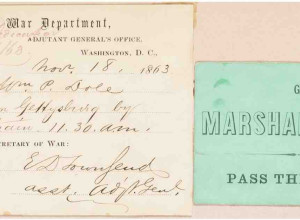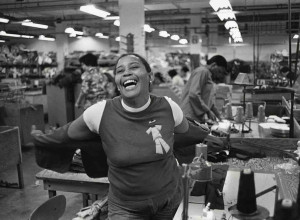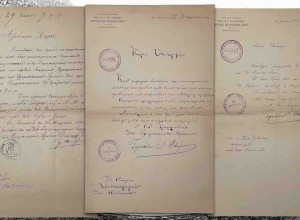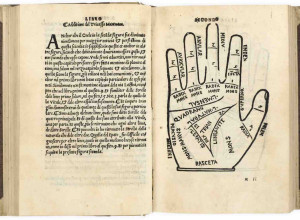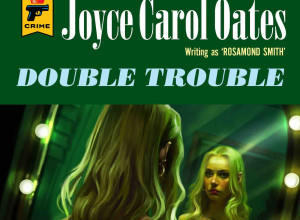Deflation Comes to the Rare Book Market (Cheers! Boos!)
The title of Americana Exchange's latest analysis of the book auction market succinctly sums up what those in the trade have been feeling for quite some time - A Market Under Pressure. It is the next logical step in the democratization of the rare book business that began with the introduction of the Internet in the 1990s: deflation, here stubbornly held at bay at auction only by the resistance of sellers to lower their expectations and allow reserves to be in harmony with what the market will bear.
According to AE's supplementary Trends in Book Auction Prices, declining lot prices and percentage of lots sold have hit a wall and splatted against the recession. Median prices, which had risen from $410 in October of 2006 to $485 n January of 2008 have dropped back and below to $400 "with no evidence to suggest the correction is over. Not so many decades ago auctions regularly sold 90% or more of lots offered. Over the last five years auctions have struggled to complete even 80% as the percentage of lots sold fell from 78% to 70%."
Consignors are not getting the message from buyers, who, for the first time in the history of the rare book trade, are now firmly in the driver's seat and are not appreciating back-seat driving from dealers and sellers. A business that has traditionally been top-down, determining what is important, what collectors should buy and at what price, has now officially become - as every other trade has had to become to survive - a bottom-up business with collectors calling the shots, the books, and prices they are willing to pay.
What Americana Exchange's data shows is that, while 45% of auctions houses are showing sell-through rates of 80%, 55% continue to encourage high reserves as a strategy to attract consignments. It is a strategy that is out of whack with the realities of the marketplace and until those auction houses (the bigger ones) and consignors allow prices to find themselves through unhindered bidding the market will continue to be distorted, "clearly interfering with the market's ability to reprice material appropriately."
Bloomsbury reports that their two most recent big sales achieved 80% and 89% lot sell-though; they have, apparently, accepted Jesus as their savior, bowed their heads, lowered their reserves, and have had their prayers answered; the kingdom of God is at hand. Other houses are encouraged to look to the skies, observe the shaft of sunlight cleaving dark clouds, and forgo pagan price structures. Right now, the best advice is to have no other gods before thee but the Rare Book Big Kahuna. who demands that sacrifice be made now to ensure fertile fields in the future.
The recession is, in my view, not the cause of this downward pressure but rather the most recent (and dramatic) catalyst for change to a business that has been struggling with change for the last fifteen years since the Internet's transparent, free-market blessing to the collector became a curse for sellers. The low and middle range of the business was thrown upside down and effectively taken out of the control of sellers. Now, the chickens have come home to roost on dealer's shelves and have left droppings that when divined by copromancers reveal that it's time for the mid to high-end material to meet their market-maker, the public. The "trickle-up" recession is now leaving lint in the deep pockets of high-end buyers who will likely never see the bubble heights of the go-go years in their portfolios again within their lifetimes. Prices, once adjusted downward, will not be bouncing back any time soon. As stock market holdings have declined to pre-bubble prices, so, too (and has, to 2003 levels, according to AE), will the equity in rare books.
Dealers have felt the same pressures as auction houses. At the 2009 New York Antiquarian Book Fair, posted prices remained high even as many dealers offered deep discounts. The general mood was gloomy; some dealers who had dramatically discounted their big books still could not sell them. Reports from the recent 2009 Olympia Book Fair in London were similar with high prices sous le manteau discounted (lest they be seen and heard) to just above cost and still no takers. A close colleague with over forty years in the trade and one of the more colorful personalities in a business bursting with them, concisely - if indelicately - described the mental state of most dealers at Olympia as "Shitting."
No dealer is yet willing to be the bad guy and be the first to lower posted prices. But some brave soul will. The trade will yell and scream, hang the dealer in effigy, invoke black magic, and stick pins in a voodoo doll.
That courageous dealer will likely experience cash flow increased to healthy while his/her colleagues' cash flow continues to suffocate. At some point, however, conniption fits will subside and sane minds prevail. The followers will follow, the fed-up will find other work or retire, the market will settle, and who's ever left will reap the benefits as buyers and sellers begin reading from the same page in the same book.
It may be time for the rare book trade to embrace the verity that rules the building of physical strength and endurance:
No pain, no gain. Orally dosed liniment in the form of ardent spirits may be indicated to ease the ache; only the ardent spirits in the trade will make it to the finish line.
According to AE's supplementary Trends in Book Auction Prices, declining lot prices and percentage of lots sold have hit a wall and splatted against the recession. Median prices, which had risen from $410 in October of 2006 to $485 n January of 2008 have dropped back and below to $400 "with no evidence to suggest the correction is over. Not so many decades ago auctions regularly sold 90% or more of lots offered. Over the last five years auctions have struggled to complete even 80% as the percentage of lots sold fell from 78% to 70%."
Consignors are not getting the message from buyers, who, for the first time in the history of the rare book trade, are now firmly in the driver's seat and are not appreciating back-seat driving from dealers and sellers. A business that has traditionally been top-down, determining what is important, what collectors should buy and at what price, has now officially become - as every other trade has had to become to survive - a bottom-up business with collectors calling the shots, the books, and prices they are willing to pay.
What Americana Exchange's data shows is that, while 45% of auctions houses are showing sell-through rates of 80%, 55% continue to encourage high reserves as a strategy to attract consignments. It is a strategy that is out of whack with the realities of the marketplace and until those auction houses (the bigger ones) and consignors allow prices to find themselves through unhindered bidding the market will continue to be distorted, "clearly interfering with the market's ability to reprice material appropriately."
Bloomsbury reports that their two most recent big sales achieved 80% and 89% lot sell-though; they have, apparently, accepted Jesus as their savior, bowed their heads, lowered their reserves, and have had their prayers answered; the kingdom of God is at hand. Other houses are encouraged to look to the skies, observe the shaft of sunlight cleaving dark clouds, and forgo pagan price structures. Right now, the best advice is to have no other gods before thee but the Rare Book Big Kahuna. who demands that sacrifice be made now to ensure fertile fields in the future.
The recession is, in my view, not the cause of this downward pressure but rather the most recent (and dramatic) catalyst for change to a business that has been struggling with change for the last fifteen years since the Internet's transparent, free-market blessing to the collector became a curse for sellers. The low and middle range of the business was thrown upside down and effectively taken out of the control of sellers. Now, the chickens have come home to roost on dealer's shelves and have left droppings that when divined by copromancers reveal that it's time for the mid to high-end material to meet their market-maker, the public. The "trickle-up" recession is now leaving lint in the deep pockets of high-end buyers who will likely never see the bubble heights of the go-go years in their portfolios again within their lifetimes. Prices, once adjusted downward, will not be bouncing back any time soon. As stock market holdings have declined to pre-bubble prices, so, too (and has, to 2003 levels, according to AE), will the equity in rare books.
Dealers have felt the same pressures as auction houses. At the 2009 New York Antiquarian Book Fair, posted prices remained high even as many dealers offered deep discounts. The general mood was gloomy; some dealers who had dramatically discounted their big books still could not sell them. Reports from the recent 2009 Olympia Book Fair in London were similar with high prices sous le manteau discounted (lest they be seen and heard) to just above cost and still no takers. A close colleague with over forty years in the trade and one of the more colorful personalities in a business bursting with them, concisely - if indelicately - described the mental state of most dealers at Olympia as "Shitting."
No dealer is yet willing to be the bad guy and be the first to lower posted prices. But some brave soul will. The trade will yell and scream, hang the dealer in effigy, invoke black magic, and stick pins in a voodoo doll.
That courageous dealer will likely experience cash flow increased to healthy while his/her colleagues' cash flow continues to suffocate. At some point, however, conniption fits will subside and sane minds prevail. The followers will follow, the fed-up will find other work or retire, the market will settle, and who's ever left will reap the benefits as buyers and sellers begin reading from the same page in the same book.
It may be time for the rare book trade to embrace the verity that rules the building of physical strength and endurance:
No pain, no gain. Orally dosed liniment in the form of ardent spirits may be indicated to ease the ache; only the ardent spirits in the trade will make it to the finish line.







